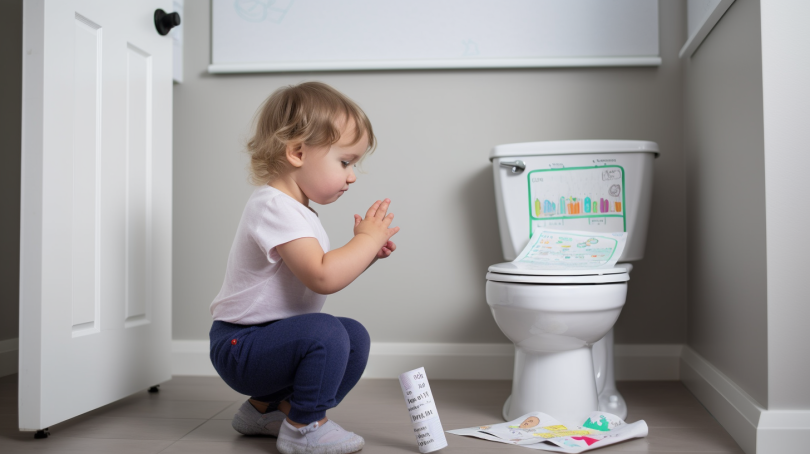As a parent, potty training your child is an inevitable milestone. It can be a challenging process, but it’s also a significant step towards independence for your child. However, it’s natural to wonder how long it takes to successfully potty train a child. Every child is unique, and there’s no one-size-fits-all answer to this question. In this article, we’ll provide you with a comprehensive overview of the potty training timeline, including its benefits and challenges, and offer practical tips and solutions to help make the process smoother for both you and your child.
The Benefits of Potty Training
Potty training is an essential step in your child’s development that contributes significantly to their overall health and well-being. Here are some benefits of potty training:
- Improved hygiene: Potty training eliminates the need for diapers or pull-ups, which can be unsanitary if not changed regularly.
- Increased independence: Potty training allows your child to take control of their bodily functions and fosters independence.
- Cost savings: Once your child is potty trained, you’ll no longer need to purchase diapers or pull-ups regularly.
- Less mess: Potty training reduces the likelihood of accidents and makes cleaning up after your child more manageable.
The Challenges of Potty Training
Potty training can be a challenging process for both parents and children alike. Here are some common challenges that parents may face during the process:
- Bedwetting: Bedwetting is a common issue during potty training that can cause frustration and embarrassment for both parents and children.
- Accidents: Accidents are bound to happen during the potty training process, which can be frustrating for both parents and children.
- Resistance: Some children may resist potty training, making the process longer and more challenging than necessary.
- Inconsistency: Inconsistent routines and approaches can prolong the potty training process.
The Potty Training Timeline
The potty training timeline varies from child to child, but most children are ready to start potty training between 18-24 months. However, some children may not be ready until they are closer to three years old. Here’s a rough timeline of what you can expect during the potty training process:
Stage One: Preparation
The preparation stage involves getting your child ready for the potty training process. During this stage, you should introduce your child to the concept of using the toilet and encourage them to sit on it without any pressure. You can also start using words like “pee” and “poop” when referring to bodily functions to help them understand what’s happening.
Stage Two: Training
The training stage involves teaching your child how to use the toilet independently. During this stage, you should encourage your child to use the toilet regularly and praise them for their efforts. You can also use incentives like stickers or small treats to encourage them further.
Stage Three: Refinement
In the refinement stage, your child will begin to use the toilet consistently with fewer accidents. During this stage, you should continue to reinforce good habits and avoid punishing your child for accidents as they are still learning.
Stage Four: Independence
The independence stage involves your child using the toilet independently without any reminders or assistance. At this point, you can start transitioning them to regular underwear and reduce the use of pull-ups or diapers.
Practical Tips for Successful Potty Training
Here are some practical tips that can help make the potty training process smoother and more successful:
- Be patient: Potty training takes time and patience. Be prepared for setbacks and accidents, and avoid putting pressure on your child.
- Stick to a routine: Consistency is key during the potty training process. Stick to a routine that works for you and your child.
- Praise your child: Praise your child for their efforts, even if they don’t succeed every time. Positive reinforcement can go a long way in encouraging good habits.
- Avoid punishment: Avoid punishing your child for accidents as it can create negative associations with potty training.
- Be prepared: Always have spare clothes, wipes, and other essentials on hand in case of accidents.
In Conclusion
Potty training is an essential milestone in your child’s development that contributes significantly to their overall health and well-being. While it can be a challenging process, it’s also an opportunity to foster independence and teach your child valuable life skills. Remember to be patient, consistent, and positive throughout the process, and don’t hesitate to seek help from experts or other parents if needed. With these tips and guidelines in mind, you’ll be well on your way to successfully potty training your child!

